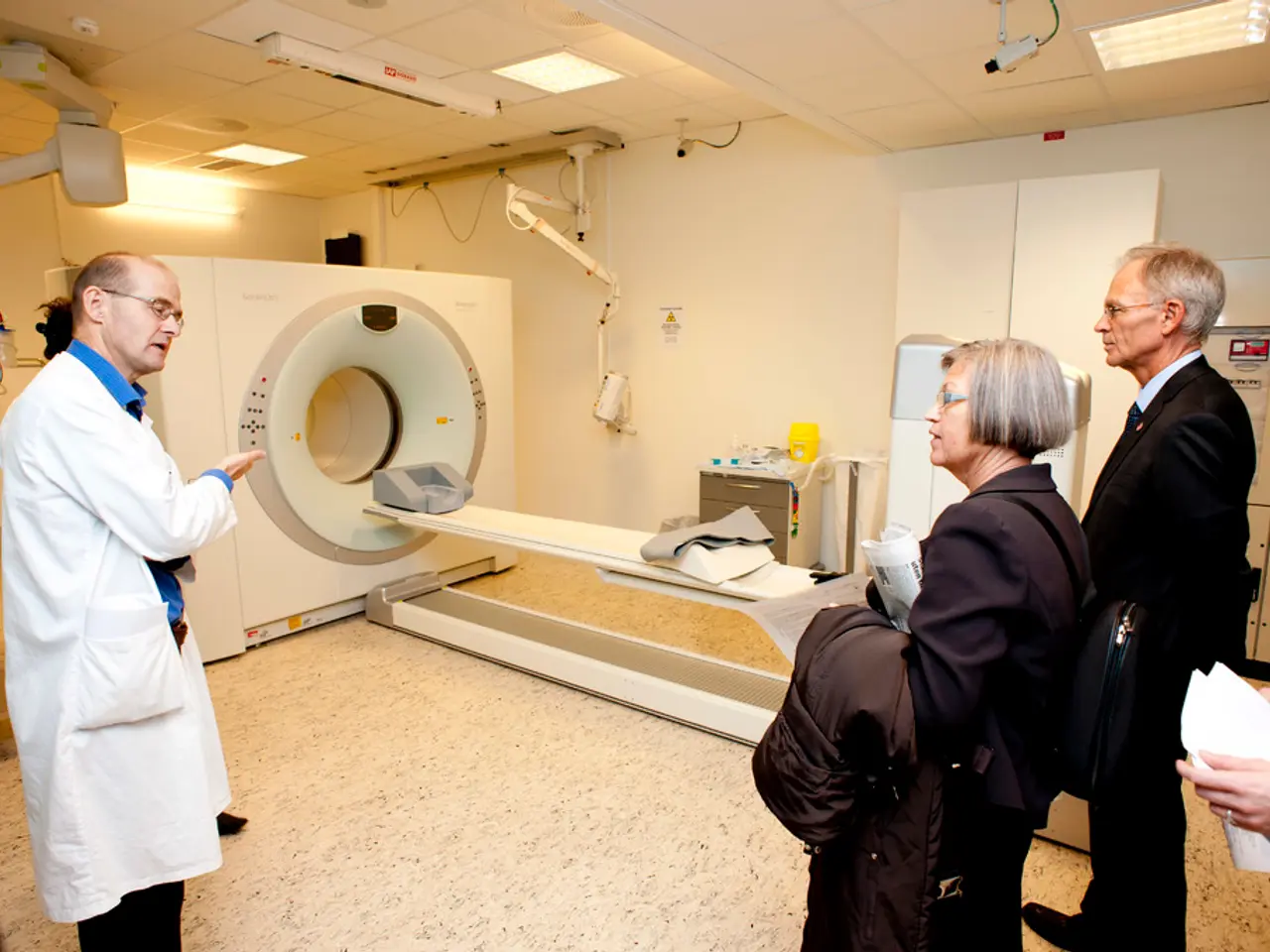Pediatrician: Essential Information Explained
Pediatricians, medical doctors specializing in the care of infants, children, adolescents, and young adults, play a crucial role in maintaining the health and well-being of our future generations. They provide a diverse range of health-related services, from physical exams to treating injuries and diagnosing medical conditions.
Pediatrics as a whole encompasses care from birth up to 18 years, occasionally extending beyond depending on the clinical context. However, the field is further divided into various subspecialties, each focusing on specific organ systems, disease classes, or patient age subsets.
Pediatric Subspecialties: A Closer Look -------------------------------------
The table below outlines key pediatric subspecialties, their primary areas of focus, and typical age ranges:
| Pediatric Subspecialty | Area of Focus | Typical Age Range | |---------------------------|--------------------------------------------------------|---------------------------------| | **Pediatric Surgery** | Surgical treatment of congenital and acquired conditions in babies, children, and adolescents | Birth through adolescence | | **Pediatric Neurology** | Disorders of the nervous system including brain, spinal cord, nerves, and muscles; conditions like seizures, developmental delays, neuromuscular disorders | Birth through adolescence | | **Pediatric Cardiology** | Heart conditions and cardiac irregularities specific to children | Birth through 18 years | | **Pediatric Orthopedics** | Musculoskeletal system disorders requiring surgical or medical interventions | Birth through adolescence | | **Pediatric Plastic Surgery** | Congenital deformities, tumors, and reconstructive surgery in children | Birth through adolescence | | **Pediatric Dentistry** | Preventive and therapeutic dental care from infancy through puberty | Infancy through puberty | | **Pediatric Pulmonology** | Respiratory conditions such as asthma and chronic lung diseases | Birth through adolescence | | **Pediatric Gastroenterology** | Digestive disorders including abdominal pain, inflammatory bowel disease, food allergies | Birth through adolescence | | **Pediatric Endocrinology** | Hormonal and metabolic disorders like diabetes and thyroid issues | Birth through adolescence |
Each of these subspecialties offers targeted care for complex or chronic conditions, often in multidisciplinary settings to address the unique developmental and medical needs of growing children.
Primary Care Pediatricians and Specialists -------------------------------------------
Primary care pediatricians, who serve as the first point of contact for most families, may lack the qualifications or expertise needed to treat complex medical conditions. In such cases, they may refer families to the appropriate pediatric specialist for further testing and treatment.
Most pediatricians go one step further and earn board certification, which requires continuous professional education throughout their careers. Specialists, such as cardiologists and neurologists, have advanced knowledge and experience in treating specific medical conditions or age ranges and may perform additional types of tests and procedures.
When to Seek Emergency Care ---------------------------
In cases of emergency, it's essential to know when to seek immediate medical attention. Parents or caregivers should call emergency services or visit the emergency room if a child has a fever of 104°F (40°C) or over, or if a fever is accompanied by seizures, confusion, constant crying, or trouble breathing. For babies younger than 2 months, a rectal temperature of 100.4°F (38°C) should prompt an emergency call.
Regular Well-Child Visits -------------------------
Regular well-child visits are crucial for maintaining a child's health. The American Academy of Pediatrics recommends that parents or caregivers take their baby to a pediatrician for a well-child visit about seven times during their first year, and children between the ages of 1 and 2 years should see a pediatrician once every 3 to 6 months.
Pediatric Care: From Conception to Adolescence ----------------------------------------------
Pediatric care can begin before conception and continue through pregnancy, offering guidance and support to expecting parents. Pediatricians can also continue seeing young people throughout adolescence, although some insurance companies may terminate pediatric care after a person turns 18.
In conclusion, pediatricians and their subspecialties play a vital role in ensuring the health and well-being of children. By understanding the various subspecialties and their areas of focus, parents and caregivers can make informed decisions about their child's health care. If you have ongoing concerns about your child's health, don't hesitate to call or make an appointment with your child's pediatrician.
- Some parents may require the assistance of a pediatric caregiver specializing in mental health during critical periods of child development, as overseeing a child's mental health is essential to their overall well-being and future success.
- Advancements in science, such as the development of Pfizer's COVID-19 vaccine, have increased the availability of effective health-and-wellness interventions for children, ensuring their continued wellness and protecting them from preventable diseases.
- In addition to referring families to specialists for complex medical conditions, primary care pediatricians can offer resources and support for parenting topics like addressing mental health, emphasizing the holistic role they play in their patients' lives beyond physical health.




